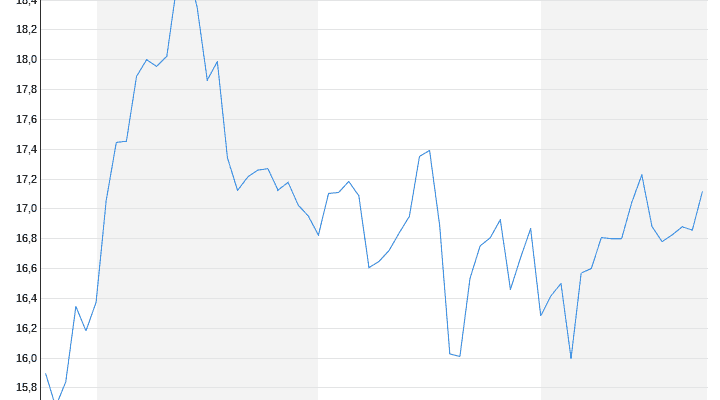Monday, October 25, 2021
Stellantis is on a downward path
Opel has a hard time in the new parent company
Four years have passed since the takeover by Stellantis, and the car manufacturer Opel has not come to rest since then. After a tough downsizing course, the new parent company now also wants to outsource the production plants from the German company. The union, works council and state politics are alarmed.
On the huge factory premises at the Opel headquarters in Rüsselsheim, the employees have experienced a painful decline since it was taken over by the Peugeot parent company PSA: Buildings were sold, parts of the company were closed and parts of the development were outsourced to service providers. Thousands of qualified employees have turned their backs on the automaker with some impressive severance payments since 2017.
Even the sustainable return to profitability or the location surcharge for the compact Astra model did not lighten the mood in the long term. Because after the merger of PSA with Fiat-Chrysler to form the even larger European car company Stellantis, Opel has an even more difficult position. Just a few years ago, a large car group from Rüsselsheim was controlled with its own development and plants in Spain, Great Britain, Germany, Austria and Poland, Opel is now shrinking more and more to a sales unit with an attached design department, judges car expert Ferdinand Dudenhöffer.
The last sign was the departure of the restructuring engineer Michael Lohscheller, who has now been replaced by the sales expert Uwe Hochgeschurtz. Opel is only one brand among many almost identical in the great Stellantis empire, after Toyota, Volkswagen and Renault-Nissan the fourth largest car company in the world. Further evidence for the thesis of dwindling independence is the leaked plan of the group to separate the two production plants in Rüsselsheim and Eisenach from the German unit Opel Automobile GmbH and to subordinate Stellantis directly.
IG Metall suspects failure
Nothing has been decided yet, explains Opel, but IG Metall suspects that the company will finally be broken up. The union has called for a variety of protests this Friday in the Opel locations of Hesse, Thuringia, Rhineland-Palatinate and Saarland. Before that, the group wants to present its deliveries and sales figures for the third quarter on Thursday.
Even four years after the Opel takeover, Stellantis boss Carlos Tavares is still very much alienated with the German system of co-determination, says Jörg Köhlinger, head of the IG Metall district in Mitte. He told the newspaper “Rheinpfalz”: “Stellantis keeps announcing decisions without consulting the social partners or the collective bargaining parties and works councils. The Stellantis management is completely non-transparent, does not put the cards on the table. This creates fear and distrust among them Employees. “
Works councils and IG Metall want to have a say when it comes to production plans and the award of contracts to individual plants. But the cost killer Tavares, like Stellantis, managed the Peugeot parent company PSA in a centralized manner, and wants to deploy the plants and employees, which are scattered over several continents, flexibly and, above all, inexpensively. The already largely identical cars of the various Stellantis brands should always be able to be manufactured by several competing units. Some Opel models have been built in earlier PSA plants for a long time and DS cars have also been rolling off the assembly line in Rüsselsheim for a few weeks.
Suspicion of preferring PSA and Fiat
Time and again, German trade unionists and politicians suspect that the giant tanker Stellantis, with around 400,000 employees worldwide, would prefer the factories and development centers of the main partners PSA and Fiat for political reasons. There was therefore great excitement that production in the comparatively small assembly plant in Eisenach would be stopped until the end of the year due to a lack of chips. While the approximately 1,300 employees in Thuringia were referred to short-time work benefits, production of the Opel Grandland SUV continues at PSA’s main plant in Sochaux near Paris.
The line to the political decision-makers in the German states also seems to have cooled down. In a joint letter, Prime Minister Volker Bouffier from the CDU, Malu Dreyer from the SPD and Bodo Ramelow from Die Linke von Tavares asked for more information and a return to trustworthy communication about the current situation of the company and its locations.
Mentality problem and loss of market share
Ultimately, however, it is also about a mentality problem: For decades, the Opel people have seen themselves as an independent car manufacturer, even though they had been part of the US giant General Motors since 1929. Especially in the success times of the 1960s and 1970s, when Volkswagen was showing the taillights, Detroit was much further away than the Stellantis headquarters in Paris and Amsterdam are now. But since the turn of the millennium at the latest, the old GM system has no longer worked, with one loss after the other for almost 20 years. Tavares has radically ended that with PSA, but also accepted considerable sales losses.
“Opel is a brand that has been getting weaker and weaker for 25 years and is systematically losing market share,” says Auto Professor Dudenhöffer. The future prospects are not rosy with a market share of only around 4 percent in Europe: In the Stellantis network, the Opel could no longer stand out technically, so that ultimately no higher prices than the sister models of Fiat or Peugeot can be enforced.
